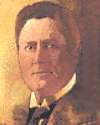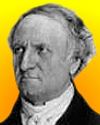 | TODAY IN SCIENCE HISTORY NEWSLETTER - 30 SEPTEMBER |
| Feature for Today |
 On 30 Sep 1861, William Wrigley, Jr. was born, the American manufacturer whose advertising campaigns made Wrigley's Chewing Gum internationally known. From humble origins, he turned his company into a multi-million dollar business. On 30 Sep 1861, William Wrigley, Jr. was born, the American manufacturer whose advertising campaigns made Wrigley's Chewing Gum internationally known. From humble origins, he turned his company into a multi-million dollar business.You can read about his commitment to advertising for making his company successful in this magazine article, Make a Good Product for a Fair Price – Then Tell the World, from Illustrated World (1922). |
| Book of the Day | |
| |
| Quotations for Today | |
 | "Nothing perhaps has so retarded the reception of the higher conclusions of Geology among men in general, as ... instinctive parsimony of the human mind in matters where time is concerned." |
 | "Balard did not discover bromine, rather bromine discovered Balard." |
 | "L'art du chercheur c'est d'abord de se trouver un bon patron. The researcher's art is first of all to find himself a good boss." |
| QUIZ | |
| Before you look at today's web page, see if you can answer some of these questions about the events that happened on this day. Some of the names are very familiar. Others will likely stump you. Tickle your curiosity with these questions, then check your answers on today's web page. | |
| Births | |
 |  A German physicist, born 30 Sep 1882, introduced the first successful detector of individual alpha particles and other ionizing radiations. He used it in experiments that led to the identification of the alpha particle as the nucleus of the helium atom and to Rutherford's determination (1912) that the nucleus of an occupies a very small volume at the centre. A German physicist, born 30 Sep 1882, introduced the first successful detector of individual alpha particles and other ionizing radiations. He used it in experiments that led to the identification of the alpha particle as the nucleus of the helium atom and to Rutherford's determination (1912) that the nucleus of an occupies a very small volume at the centre. Can you name this man? Can you name this man? |
 |  Jean-Baptiste Perrin, born 30 Sep 1870, was a French physicist who, in his studies of the Brownian motion of minute particles suspended in liquids, verified Albert Einstein's explanation of this phenomenon and thereby confirmed the atomic nature of matter. He was able to determine by a new method, one of the most important physical constants, for which achievement he was honoured with the Nobel Prize for Physics in 1926. Jean-Baptiste Perrin, born 30 Sep 1870, was a French physicist who, in his studies of the Brownian motion of minute particles suspended in liquids, verified Albert Einstein's explanation of this phenomenon and thereby confirmed the atomic nature of matter. He was able to determine by a new method, one of the most important physical constants, for which achievement he was honoured with the Nobel Prize for Physics in 1926.  Can you name the constant he determined? Can you name the constant he determined? |
| Deaths | |
 |  A seismologist (1900-1985) devised a way to describe earthquake intensity which he developed with his colleague, Beno Gutenberg, in the early 1930's. The method assigns numerical ratings to the energy released by earthquakes. A seismologist (1900-1985) devised a way to describe earthquake intensity which he developed with his colleague, Beno Gutenberg, in the early 1930's. The method assigns numerical ratings to the energy released by earthquakes. Can you name this scientist? Can you name this scientist? |
| Events | |
 On 30 Sep 1982, two men completed the first circumnavigation of the world in a helicopter, the Spirit of Texas. Their journey began 29 days, 3 hours, and 8 minutes earlier on September 1. One of the aviators was Jay Colburn. On 30 Sep 1982, two men completed the first circumnavigation of the world in a helicopter, the Spirit of Texas. Their journey began 29 days, 3 hours, and 8 minutes earlier on September 1. One of the aviators was Jay Colburn.  Who was the other aviator? Who was the other aviator? | |
 |  On 30 Sep 1929, German auto maker Fritz von Opel made the first manned flight with a new form of power. He flew his Sander RAK 1 craft on a successful flight of 75 seconds, covering almost 2 miles near Frankfurt-am-Main, Germany. On 30 Sep 1929, German auto maker Fritz von Opel made the first manned flight with a new form of power. He flew his Sander RAK 1 craft on a successful flight of 75 seconds, covering almost 2 miles near Frankfurt-am-Main, Germany.  What powered his aircraft? What powered his aircraft? |
 |  On 30 Sep 1882, the world's first hydroelectric power plant in the U.S. was opened. Powered by a water wheel, a single dynamo provided 12.5 kilowatts enough for 180 lights, of ten candlepower each. A local paper manufacturer, H.F. Rogers, had been inspired by Thomas Edison's plans for an electricity production station in New York. On 30 Sep 1882, the world's first hydroelectric power plant in the U.S. was opened. Powered by a water wheel, a single dynamo provided 12.5 kilowatts enough for 180 lights, of ten candlepower each. A local paper manufacturer, H.F. Rogers, had been inspired by Thomas Edison's plans for an electricity production station in New York. In which U.S. state was this first hydroelectric power plant established? In which U.S. state was this first hydroelectric power plant established? |
| Answers |
When you have your answers ready to all the questions above, you'll find all the information to check them, and more, on the September 30 web page of Today in Science History. Or, try this link first for just the brief answers. Fast answers for the previous newsletter for September 29: Seymour R. Cray; fluorine; Edwin Hubble; amino acids. |
| Feedback |
 If you enjoy this newsletter, the website, or wish to offer encouragement or ideas, please send feedback by using your mail reader Reply button. If you enjoy this newsletter, the website, or wish to offer encouragement or ideas, please send feedback by using your mail reader Reply button. |
If you do not want to receive any more newsletters, this link
To update your preferences and to unsubscribe visit this link
! !



